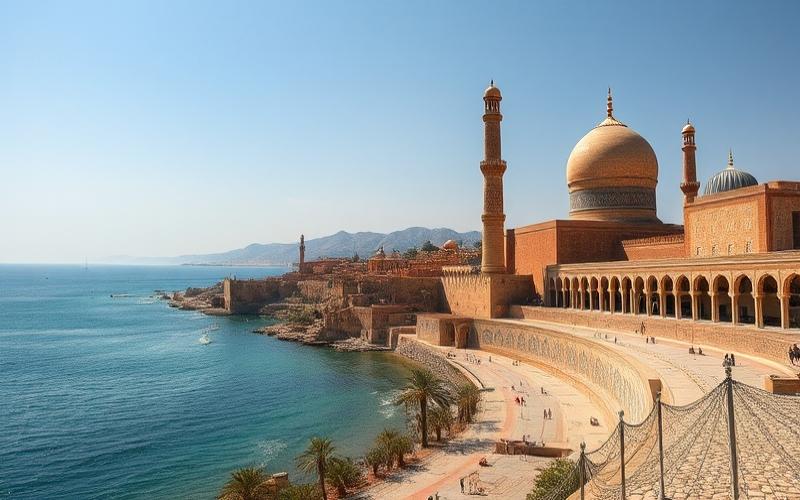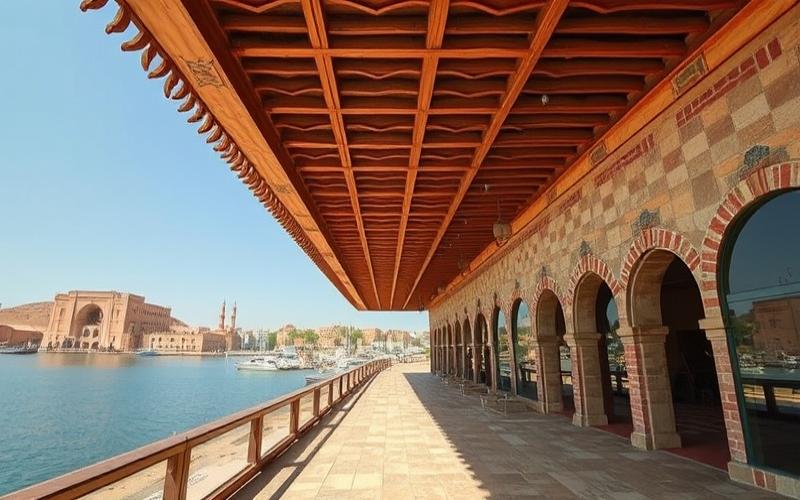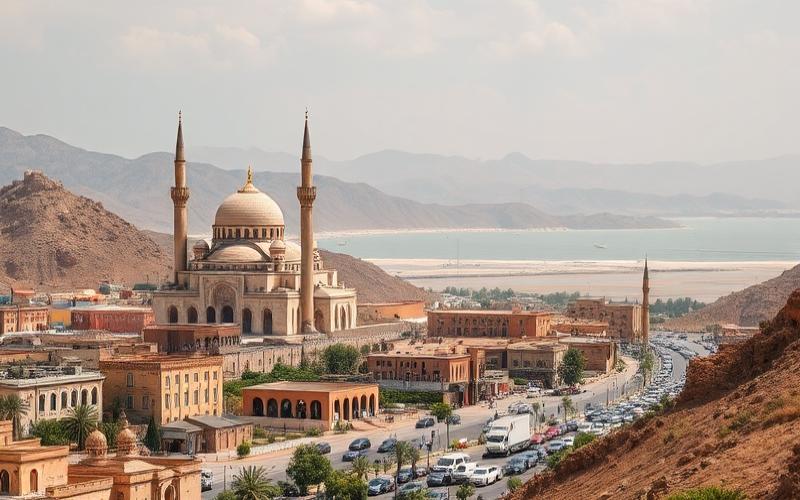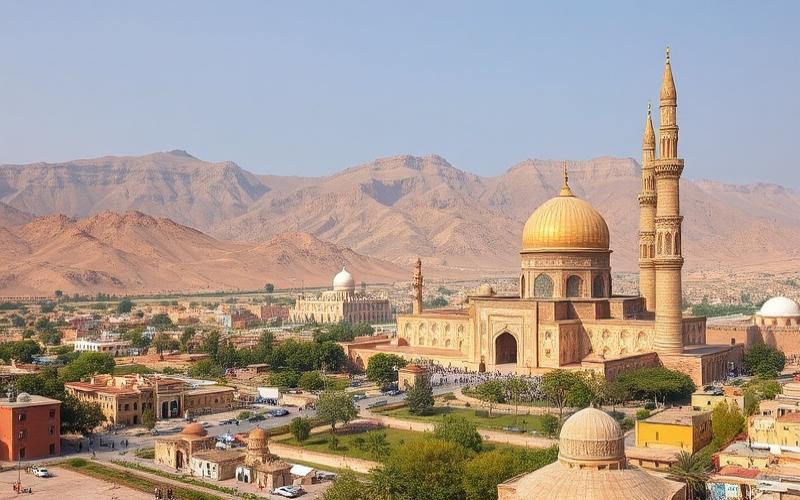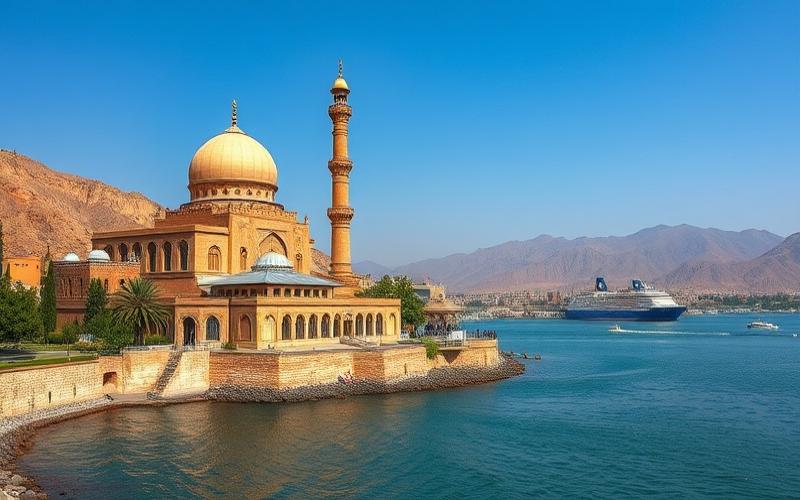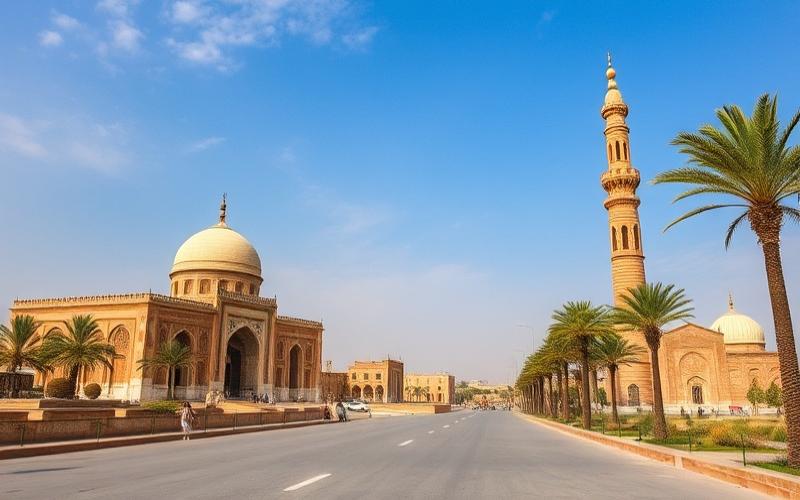
 Published on and written by Cyril Jarnias
Published on and written by Cyril Jarnias
In the Kingdom of Bahrain, consumer rights are evolving significantly to provide citizens with enhanced protection and effective recourse in case of disputes. As the market continues to open up and diversify, consumer protection laws are adapting to ensure that buyers’ rights are not only recognized but also rigorously defended.
Recent reforms highlight essential guarantees and complaint mechanisms, which are becoming increasingly accessible and understandable for all. This article examines the steps taken by Bahrain to strengthen consumer confidence, as well as the legal infrastructures and organizations established to support these growing rights in this rapidly transforming economic context.
Consumer Rights in Bahrain: An Overview
Bahrain regulates consumer rights through specific legislation and regulations aimed at ensuring market transparency, safety, and fairness. The national body responsible for protecting consumer rights is typically a dedicated government entity, responsible for enforcing laws, processing complaints, and educating the public.
Main Responsibilities of the National Body:
- Monitoring business compliance with laws.
- Processing and resolving claims promptly.
- Disseminating educational information on rights and obligations.
- Promoting initiatives to improve food safety, product quality, or customer service.
Fundamental Rights Guaranteed to Consumers:
- Right to Information: Clear access to characteristics, prices, and conditions before any purchase.
- Right to Safety: Protection against dangerous or defective products (regular checks).
- Right to Choose: Ability to freely compare competitive offers without abusive hindrance.
- Right to Complain: Easy filing of a complaint in case of a dispute with a seller or supplier.
Summary Table:
| Fundamental Right | Practical Application | Common Examples |
|---|---|---|
| Information | Mandatory display of price & composition | Detailed food labeling |
| Safety | Health checks & product recalls | Public recall in case of product danger |
| Choice | Fight against anti-competitive practices | Multiple offers for the same good |
| Complaint | Official platforms to report abuse | Free mediation via official website |
Concrete Application Examples:
- When a consumer buys a defective electronic device, they can demand repair or refund thanks to the right to safety and the right to complain to the point of sale.
- Supermarkets must clearly display the price per liter or kilo; if not respected, the customer can easily file a complaint.
- In case of an allergen not mentioned on a food package leading to a health incident, the producer is legally held responsible.
Recent Reforms/Government Initiatives:
- Recent adoption of an expansionary budget law aiming in particular to strengthen protections in certain sensitive sectors (food/health).
- Increased implementation of digital tools facilitating recourse (dedicated web platform for complaints).
- National campaigns to raise awareness about good business practices as well as the safe use of financial services.
Main Challenges Faced by Consumers Today:
- Sometimes lack of complete information during aggressive promotions
- Difficulty in certain cross-border situations (international e-commerce)
- Variable inflation affecting real purchasing power despite formal protections
Synthesized List of Current Challenges:
- Insufficient clarity in certain commercial contracts
- Unequal access to official digital tools depending on social category
- Sometimes lengthy delays in amicable resolution
The overall aim is continuous improvement so that every consumer effectively benefits – in daily life – from their fundamental rights framed by Bahraini legislation.
Good to Know:
In Bahrain, Consumer Protection is ensured by the Ministry of Industry and Commerce, guaranteeing major rights such as safety and the right to information when purchasing products. Faced with challenges related to unfair business practices, the country continues reforms to strengthen its laws, such as the recent initiative to improve contract transparency.
Guarantees Offered to Expatriates and Residents
The guarantees offered to expatriates and residents in Bahrain are framed by several laws and mechanisms, aiming to protect consumer rights in the purchase of products, services, and real estate. The major differences between expatriates and local residents mainly concern access to certain types of properties or services, but rights related to consumption and guarantees are largely similar.
Main Types of Accessible Guarantees:
- Legal Guarantee: Imposed by law, it covers defects in conformity or hidden defects of products and services. It applies to all consumers, regardless of nationality.
- Commercial Guarantee: Offered by manufacturers or sellers, it may include an extension of the legal guarantee or additional benefits (free repair, exchange, etc.). Its duration and terms vary by provider and product type.
Return, Exchange, and Refund Rights:
- Return right generally granted within 7 to 14 days for new, unused products, according to the seller’s policy.
- Exchange right possible in case of proven defect or dissatisfaction within the allotted time.
- Full or partial refund depending on the nature of the problem and the time elapsed since purchase.
Standard Warranty Period:
For most consumer goods (electronics, appliances, vehicles), the standard warranty period is 12 months.
Certain specific services or products (real estate, technical services) may benefit from longer warranties or specific coverages according to the contract.
Types of Products or Services Concerned:
| Category | Legal Guarantee | Commercial Guarantee | Return/Exchange Right |
|---|---|---|---|
| Electronics | Yes | Yes | Yes (7-14 days) |
| Appliances | Yes | Yes | Yes (7-14 days) |
| Vehicles | Yes | Yes | Limited |
| Real Estate | Yes (conformity) | No (unless contract) | No |
| Services | Yes (quality) | Yes (if included) | Limited |
Specific Laws Protecting Consumers:
- Consumer Protection Law: It guarantees safety, quality, clear information on products and services, as well as recourse in case of dispute.
- Commercial Companies Law and Real Estate Property Law Decree: Protect the rights of expatriates and residents regarding property and investment.
Differences Between Expatriates and Local Residents:
- Guarantee and recourse rights are generally identical for expatriates and local residents.
- Expatriates can purchase real estate in specific designated areas, with the same conformity guarantees and legal protection as residents.
- Access to certain strategic services or economic activities may remain reserved for nationals (e.g., fishing, recruitment agencies).
Government Agencies and Consumer Protection Bodies:
- Ministry of Industry, Commerce and Tourism (MOICT): Monitors compliance with the consumer protection law, receives complaints, and can impose sanctions on offenders.
- Survey and Land Registration Bureau (SLRB): Registers real estate transactions and protects owners’ rights.
- Real Estate Regulatory Authority (RERA): Oversees transaction compliance and enforcement of real estate standards.
Recourse Available in Case of Dispute or Dissatisfaction:
- Filing a complaint with MOICT or RERA for commercial or real estate disputes.
- Mediation offered by government agencies to resolve disputes amicably.
- Referral to competent courts in case of mediation failure or non-compliance with guarantees.
Key Takeaways:
- Expatriates and local residents benefit from a favorable legal and tax environment, with extensive protection guarantees for their purchases and investments.
- Recourse is accessible to all, with fair handling of complaints and disputes by competent authorities.
- It is essential to verify the compliance of zones and products/services concerned before any purchase or investment to ensure full application of rights.
Good to Know:
Expatriates and residents in Bahrain benefit from similar protections regarding legal guarantees, with electronics often offering a standard one-year period. However, local laws provide specific recourse via the Ministry of Industry and Commerce in case of disputes, where expatriates can also turn to their embassies for assistance.
Recourse Available in Case of Consumer Dispute
The consumer protection authorities in Bahrain, notably the Consumer Affairs Directorate of the Ministry of Industry and Commerce (MOIC), play a central role in processing complaints and mediation. They ensure:
- Regular inspection of businesses and products to verify compliance with safety standards.
- Reception and processing of complaints filed by consumers.
- Implementation of corrective or penal actions against faulty companies.
- Public awareness through educational campaigns.
Filing an official complaint is mainly done via:
- The government portal “Tawasul,” allowing direct communication with MOIC to report a dispute or non-compliance.
- By email addressed to the concerned directorate (consumer_protection@moic.gov.bh).
Here are the typical steps to file a complaint:
- Gather all evidence (invoices, photos, correspondence).
- Submit the complaint online or by email detailing the encountered problem.
- Follow-up by a dedicated agent who examines the file within a regulatory timeframe.
Available recourse includes:
| Option | Description | Specificities |
|---|---|---|
| Mediation | Attempt at amicable resolution supervised by the competent authority | Fast, low-cost |
| Arbitration | Decision rendered by an independent arbitrator | Contractual commitment required |
| Specialized Court | Direct referral to competent jurisdictions (e.g., civil courts) | Longer and more formal procedure |
In case of a defective product or non-compliant service, legal guarantees apply automatically:
- Right to full refund
- Product replacement
- Free repair
These rights are guaranteed without additional fees when the anomaly is proven within the legal framework.
The main guarantees are:
Fundamental Rights Protected
- Safety: obligation for manufacturers/distributors to ensure their products present no danger.
- Information: transparency on prices, composition, general conditions.
- Freedom of choice: access to multiple offers respecting minimum standards.
Recent Concrete Examples
- An importer who marketed non-compliant electronic devices was sanctioned following several complaints; their goods were withdrawn from the market and they had to fully refund their customers in accordance with decisions taken after ministerial investigation.
- Cases related to the food sector where certain businesses received high fines following the sale of expired products; thanks to the Tawasul system, affected consumers obtained redress quickly under government supervision.
- In the telecoms/Internet services domain, several disputes over abusive interruption or erroneous billing were resolved either directly via MOIC mediation or before a specialized civil court depending on the severity observed.
In summary, Bahrain offers consumers various robust mechanisms – ranging from amicable settlement to judicial route – supported by specific legislation ensuring transparency and effective redress in case of proven dispute.
Good to Know:
Consumers in Bahrain can resolve their disputes through protection authorities that offer mediation and assistance, or resort to specialized courts and arbitration for more formal solutions. In case of a defective product, legal guarantees allow for a refund or exchange, as illustrated by the recent case of defective smartphones where thousands of customers obtained redress.
Recommendations to Protect Buyers’ Rights
Current consumer protection laws in Bahrain are primarily based on the Consumer Protection Law, which guarantees fundamental rights when purchasing goods or services and protects against monopolistic practices and commercial fraud. This law imposes strict obligations on businesses regarding transparency, accurate product information, and compliance with legal standards.
Role of Government Agencies and Advocacy Organizations:
- The Ministry of Industry and Commerce (Consumer Protection Directorate) handles complaints related to retail goods and services.
- The Telecommunications Regulatory Authority (TRA) oversees the telecom sector with an advanced engagement system to strengthen contract transparency, guarantee billing accuracy, ensure responsible promotion of commercial offers, protect the quality of service provided, and allow consumers direct management of their subscriptions.
- The Central Bank of Bahrain manages disputes concerning banks, financial institutions, or insurance companies.
- The Ministry of Health intervenes for any dispute related to health or beauty products.
- The Electricity & Water Authority (EWA) handles claims in the energy sector.
Recapitulative List:
- Ministry of Industry & Commerce: general goods/services
- TRA: telecommunications
- CBB: banking/insurance
- Ministry of Health: health/beauty
- EWA: energy
Synthetic Table – Recourse by Sector:
| Sector | Competent Agency | Main Channel |
|---|---|---|
| Goods/services | Consumer Protection Directorate | Tawasul/email |
| Telecommunications | Telecommunications Regulatory Authority | TRA system |
| Banking/Insurance | Central Bank of Bahrain | Tawasul/form |
| Health/Beauty | Ministry of Health | Tawasul |
| Energy | Electricity & Water Authority | Tawasul/phone |
Strategies to Ensure Respect for Legal Guarantees Offered to Buyers:
- Implement a transparent prior information system: clear contract summary provided systematically before signing.
- Automatic notification at contract end to avoid any unwanted tacit renewal.
- Regular verification through independent audits of effective compliance with legal standards by all major economic operators.
- Strengthened control over pricing accuracy and error-free billing accessible via secure customer portal.
Consumer Education is Essential So They Understand Their Rights and Recourse:
- Mass dissemination of clear information via official government websites and targeted media campaigns (practical guides, FAQ, interactive workshops).
- Easy availability of e-services allowing quick filing and transparent follow-up of complaints or arbitration requests.
- Regular organization of public educational sessions in various neighborhoods/cities.
Possible Legislative Improvements:
- Explicit introduction in national law of the right to rapid financial compensation in case of proven non-compliance with legal guarantee (example: automatic compensation).
- Mandatory periodic reinforcement (every 2 years) by independent external certification for each major company regarding effective compliance with legally set consumer standards.
- Official creation of a single intersectoral body centralizing all consumer complaints to accelerate their cross-sectoral processing between different commercial sectors.
Good to Know:
Consumer protection laws in Bahrain are strengthened by the action of government agencies and advocacy organizations that also encourage consumer education; better awareness could involve more campaigns on rights and recourse in case of dispute. To enhance protection, legislative amendments could include stricter sanctions against unfair business practices.
Disclaimer: The information provided on this website is for informational purposes only and does not constitute financial, legal, or professional advice. We encourage you to consult qualified experts before making any investment, real estate, or expatriation decisions. Although we strive to maintain up-to-date and accurate information, we do not guarantee the completeness, accuracy, or timeliness of the proposed content. As investment and expatriation involve risks, we disclaim any liability for potential losses or damages arising from the use of this site. Your use of this site confirms your acceptance of these terms and your understanding of the associated risks.





















